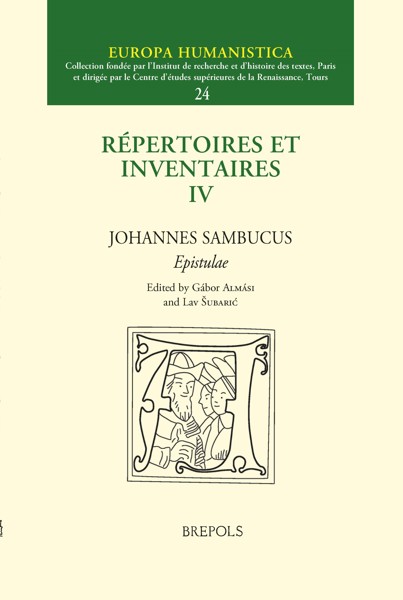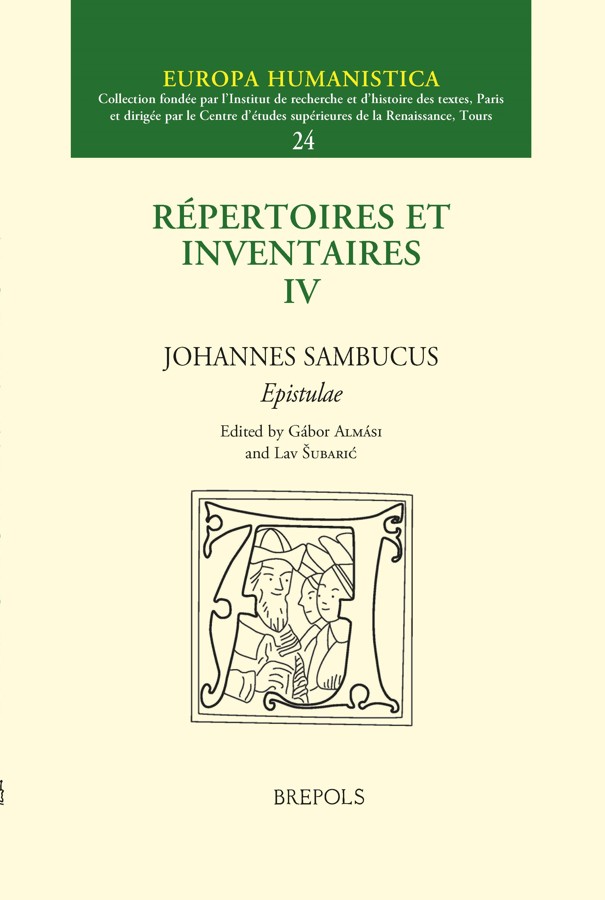
- Pages: 511 p.
- Size:156 x 234 mm
- Illustrations:1 b/w
- Language(s):English, Latin
- Publication Year:2024
- € 115,00 EXCL. VAT RETAIL PRICE
- ISBN: 978-2-503-61098-6
- Hardback
- Available
This is the first full edition of the correspondence of the humanist Johannes Sambucus (1531‒1584), one of the key members of the Republic of Letters in Central Europe.
The editors of this volume, Gábor Almási and Lav Šubarić are both members of the Ludwig Boltzmann Institute for Neo-Latin Studies in Innsbruck.
This is the first full edition of the correspondence of the humanist Johannes Sambucus (1531‒1584). Sambucus was a philologist, book collector, doctor, and imperial historian, most famous for his beautiful collection of emblems (the Emblemata), his exceptionally large private library, and his excellent editions of Classical, Byzantine and Renaissance authors, which were printed by the best publishers of Europe. Sambucus hailed from the prosperous and cosmopolitan city of Trnava in western Hungary. After studying at the universities of Vienna, Wittenberg, Ingolstadt, Strasburg, Paris, and Padua, he toured Europe and collected books for many years before settling in Vienna in 1564. By that time, he was a renowned Latin poet and philologist, the author of several books, and a respected friend of many humanists and learned men. Although the first items of his correspondence go back to 1549, it was only after his settlement that the exchange of letters became an essential means of furthering his publishing projects and maintaining his prestigious position in the Republic of Letters.
The 377 Latin, German, Hungarian, and Greek letters of the present edition come mostly from archives scattered throughout Europe and from old prints (Sambucus's personal collection of letters has scarcely survived). Thirty-two dedicatory epistles, which appeared in the 14th volume of the series Europa Humanistica in 2014—to which this is a complementary volume—have not been reproduced here. With over a hundred corresponding partners, these letters provide a unique perspective, shedding light not only on Sambucus’s philology but also on the wider intellectual culture of Central Europe.




